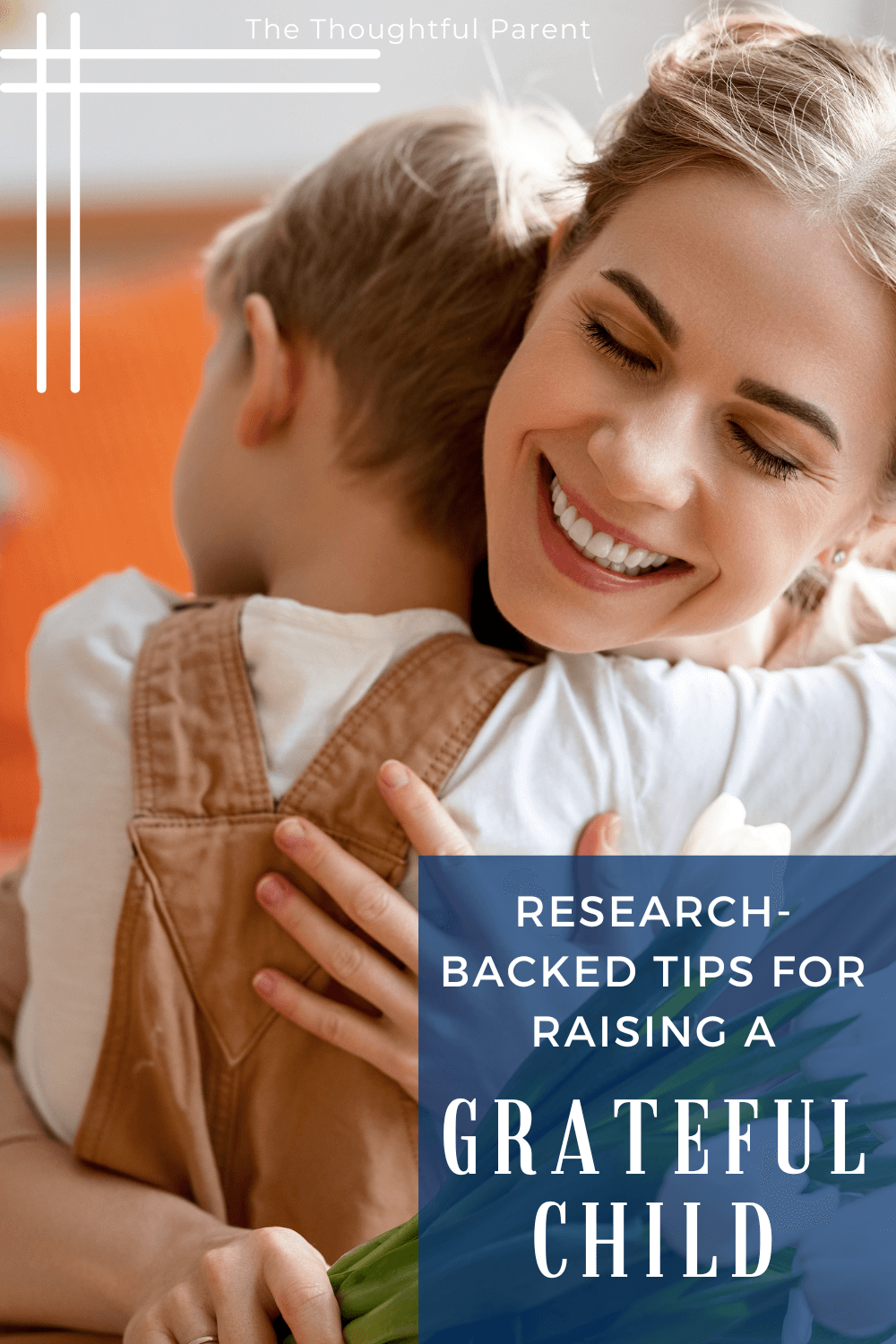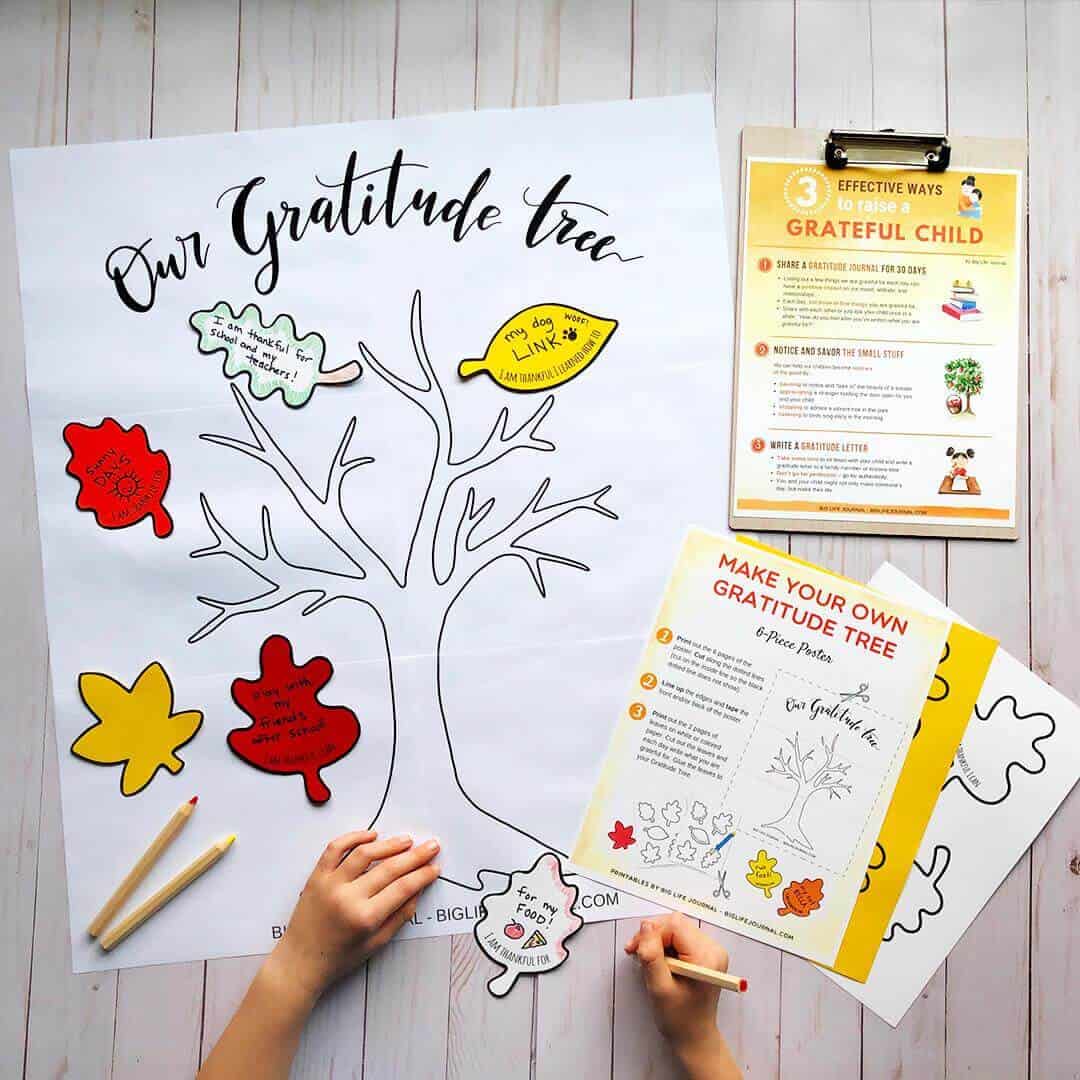Sneak peek: In thinking about how to raise grateful children, we look beyond the surface to a deeper understanding of gratitude. Research helps us with helpful ideas for fostering gratitude in our children.
What if I told you there was something you could do for your kids, that would enhance their mental health, grow their self-esteem and maybe even protect them from online addiction?
Sounds pretty good, right?
Well, it may not be what you expect. All these wonderful positive benefits come from gratitude. Yep, that’s what research tells us.
Gratitude is probably one of the most studied psychological traits or values in studied in psychology today. In our hearts, we know that gratitude makes us feel good but only in the last few decades have we understood the power of gratitude from a research perspective.
Gratitude has been found to enhance mental health, greater confidence, and greater happiness and has even recently been linked to lessening the chance of online gaming addiction in teens. We know that gratitude is important to foster in our children, but how do we do this?
A few generations ago, all gratitude meant was saying “thank you” for a gift or writing thank you cards to those far away relatives who gave you a birthday gift. But today we know that true gratitude is more than just thank you’s and cards. True gratitude is really an attitude toward life. So the question becomes: how to raise grateful children (in the fullest sense of the word)? How do we foster in our children an attitude of gratitude towards life that even in our darkest times, there’s something to look at with gratitude?
Related reading: Simple, Research-Backed Ways for Raising a Thankful Child
This deep-seated sense of gratitude is a lot harder to foster in kids. Plus, in our culture today there is definitely an ethos of “give me more”, rather than an ethos of “I have enough.” How do we go against this cultural ethos and foster gratitude in our kids when the world is telling them to ask for more and more?
Well, luckily science can help us on this front as well. Research studies at UNC Chapel Hill have begun looking at the science of gratitude and how we might be able to unpack the ways in which we can foster true gratitude in children’s lives.

How to Raise Grateful Children
As parents, it’s easy to see gratitude in children as just the “thank you” after a gift is given. Research tells us, however, that true gratitude has more to do with feelings and thoughts than just words.
To be able to understand the full experience of gratitude, kids have to have a certain about of social-emotional skills developed. The full understanding of gratitude (beyond just thank you’s) doesn’t really develop until about age 3-5 when kids gain more cognitive abilities in perspective-taking or being able to understand others’ intentions.
Research tells us that the full experience of gratitude involves 4 parts:
Notice: we (or our children) notice things in our lives for which we are grateful
Think: we (or our children) think about why we have been given or why we have these things, events, people, etc. in our lives
Feel: we (or our children) consider how we feel about these things–items, events, people, etc.
Do: we (or our children) find ways to express our gratitude
What studies show is that, not surprisingly, most parents’ primarily focus on the action (the DO part) of fostering gratitude.
Download the Emotional Intelligence Kit
While this is great, it doesn’t help kids tie their feelings to their expression of gratitude. That’s why we often hear the half-hearted “thank you’s” from our kids rather than a more meaningful expression of gratitude.
Kids need support to think about their feelings of gratitude and then link them to their actions.
So what is a parent to do? How can we raise grateful kids, beyond surface-level “thank you’s”?
Start with these simple questions to help kids focus on the 4 steps of gratitude.
When you sign up to be a paid subscriber of my Substack newsletter, you’ll receive access to this printable list and ALL the printable resources I’ve created for parents over the years.

Sign up today!
Fostering Gratitude in Children
Raising grateful children is still possible in today’s world. If we intentionally focus on helping children get in touch with what gratitude feels like and how to express it, true gratefulness will grow in their hearts. By teaching kids that gratitude is not just about “thank you’s” but about noticing and feeling it wholeheartedly, they will adopt a grateful attitude towards life.






Leave a Reply